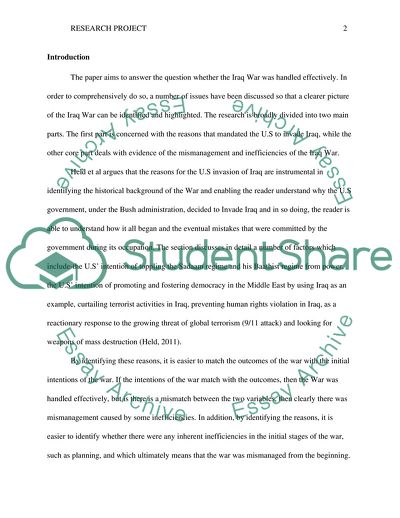Cite this document
(Was the Iraq War Handled Effectively Coursework Example | Topics and Well Written Essays - 4250 words, n.d.)
Was the Iraq War Handled Effectively Coursework Example | Topics and Well Written Essays - 4250 words. https://studentshare.org/social-science/1873745-was-iraq-war-handled-effectively
Was the Iraq War Handled Effectively Coursework Example | Topics and Well Written Essays - 4250 words. https://studentshare.org/social-science/1873745-was-iraq-war-handled-effectively
(Was the Iraq War Handled Effectively Coursework Example | Topics and Well Written Essays - 4250 Words)
Was the Iraq War Handled Effectively Coursework Example | Topics and Well Written Essays - 4250 Words. https://studentshare.org/social-science/1873745-was-iraq-war-handled-effectively.
Was the Iraq War Handled Effectively Coursework Example | Topics and Well Written Essays - 4250 Words. https://studentshare.org/social-science/1873745-was-iraq-war-handled-effectively.
“Was the Iraq War Handled Effectively Coursework Example | Topics and Well Written Essays - 4250 Words”. https://studentshare.org/social-science/1873745-was-iraq-war-handled-effectively.


